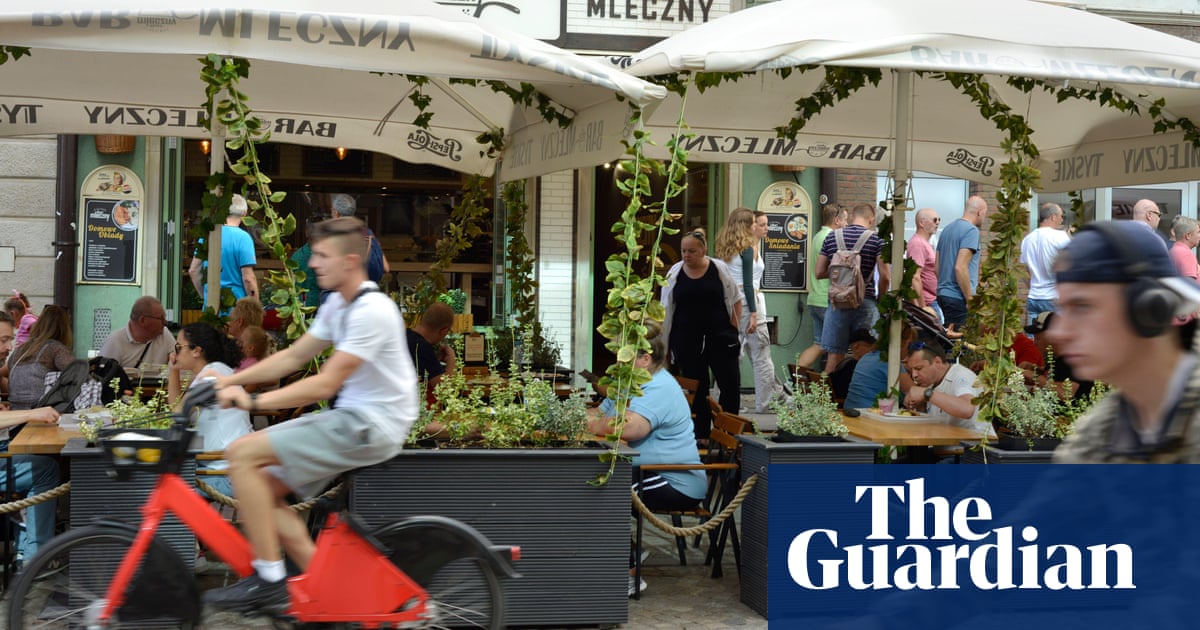Much is being said about Poland’s economy potentially overtaking Britain by 2030, but in some areas Poles are already ahead.
They can produce a digital identity card or driving licence and use an array of public services using a mobile app, mObywatel. When accessing it for the first time, users have to verify their identity by logging into electronic banking, using a digitally enabled physical ID card, or through a special “trusted profile” online.
The app, which has 8 million users, has a myriad features such as allowing Poles to produce a digital version of their ID, check how many penalty points they have on their driving licence, look up their vehicle’s history, check air quality locally and find their polling station.
Rafał Sionkowski, a senior government official working on the app, said keeping the core team of developers within public institutions allowed them to move faster as they knew databases were digitised and could be made available to citizens quickly.
He said the key breakthrough would come as more EU countries develop similar apps ahead of the bloc’s new eIDAS 2.0 regulation on electronic identification, authentication and trust services.
The regulation, which is expected to be fully implemented by 2026 or 2027, provided the legal frame work to allow electronic identification systems to work across EU borders, “so you could show and verify your digital driving licence in Germany, or digital ID in Spain”, Sionkowski said.
He added that his team was looking to add new features to the Polish app, such as a tool for notifying insurers of car accidents. There is also growing interest in whether the app could play a role in online age verification and helping vulnerable groups access public services.
“The key thing is to focus on services that people will use,” Sionkowski said. He added that including thousands of air quality monitors to help people check their local readings was a particular hit in Poland. “That is when you actually add value through the app,” he said.
Wojciech Klicki, a privacy lawyer with the Panoptykon Foundation, a Polish rights NGO, stressed that such services needed to be designed to comply with strict “privacy-by-design, privacy-by-default” principles, but was not too concerned about their use. “We are primarily talking about the government reusing the data it already has or gets, just more efficiently,” he said.
However, Klicki warned against adding features that could be seen as intrusive, such as registering someone’s location without explicit permission.
He also pointed out that making the apps open source, to allow for independent scrutiny, or adding a feature to check which data was accessed by other government departments would help as they would give citizens greater control over their data.
Janusz Cieszyński, a former digital minister in the previous Law and Justice (PiS) government,said the rollout of the app was less controversial in Poland than it would have been in the UK given the existence of physical ID cards.
He played down criticisms that the app could turn into a Big Brother-style tool for snooping on citizens. “The key is to never make them mandatory. It is the same with some people holding out on using debit cards as they prefer to use cash. Fine,” Cieszyński said.
He added that he was excited about the technological opportunities of bringing more public services into a single app. “Theoretically, you could even use it for benefits, cost of living payments, or emergency allowances given to areas affected by a natural disaster, such as flood. You could make money available almost instantly by loading it on to a virtual payment card,” he said.










